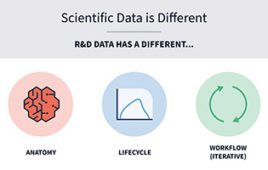
A UCR study has shown how different people in different places use the internet to discuss their health. Source: UC Riverside
Most Americans go online for information and support about health-related issues. But what exactly are they looking for? Researchers at the University of California, Riverside shed light on this in a new study that examines how different people in different places use the internet to discuss their health. Titled “Demographic-Based Content Analysis of Online Health-Related Social media,” the study was published today (June 13) in the Journal of Medical Internet Research.
Young people, it turns out, are most likely to discuss Attention Deficit Hyperactivity Disorder (ADHD) on drug review websites like drugs.com, whilst posting about ‘parents’ and ‘homosexuality’ in health forums such as WebMD. Users in the Northeastern U.S. talk more about physical disorders, like diabetes and heart conditions, whereas those in the West discuss mental health disorders and addictive behaviors. Users with lower writing levels express more frustration and anger, the study shows.
The research, led by Vagelis Hristidis, a professor of computer science and engineering in UCR’s Bourns College of Engineering, is the first large-scale, data-driven study to track the content posted by different demographic groups across the United States, highlighting issues that are important to distinct groups of people.
“Our findings can help healthcare practitioners connect with the right people in the right places to deliver targeted educational campaigns; enable marketers to advertise products to the right audiences; and help researchers examine preventable differences in how people understand diseases and fix these disparities,” Hristidis said.
Building on previous research exploring the demographics of health forum users, the current study examined more than 20 million user posts on Twitter, Google Plus, WebMD, drugs.com, and DailyStrength, for hundreds of health-related keywords, medical terms and popular drugs–an undertaking that took 10 computers more than a month to complete.
Demographic information–including gender, age, location and, where possible, ethnicity–was collected or estimated to understand how different people post online about their health. Among the findings in drug review websites and health forums:
- Women talk more about pregnancy-related issues while men discuss pain drugs, cholesterol and heart problems.
- Young people discuss ADHD and skin problems in drug review sites and parents and homosexuality in health forums.
- Older users are active online, and discuss diabetes, heart disease, cholesterol and muscle pain.
- Users in the Northeast talk more about physical disorders; in the Midwest users discuss weight loss; in the South they post about fibromyalgia; and in the West they discuss mental disorders and addictive behaviors.
- People with a higher writing level express less anger in their posts.
For traditional social media sites, the researchers selected Twitter and GooglePlus, both of which provide public data. These were the only sites that allowed for data analysis by ethnicity. Key findings were:
- Men talked more about their reproductive systems (using words like ‘prostate’ and ‘testicular’), tumors, AIDS and health insurance, whereas women talked about headache and emotion.
- White and Hispanic Twitter users talked about Fibromyalgia; Hispanic users also discussed headaches and sleeplessness; and Asian users discussed heart and kidney diseases.
Twitter and GooglePlus posts were related less to users’ own health and more likely to refer to a news story or awareness campaign that was trending on the site, Hristidis said.
“When people post on GooglePlus or Twitter, they are posting from their own accounts and under their own names, so they are less likely to post personal information about their health status,” Hristidis said. “A popular approach among web forum users is to create a pseudonym, which enables people to share their own experiences.”
Shouq Sadah, a Ph.D. student in Hristidis’ research group, conducted this research, along with fellow Ph.D. students Moloud Shahbazi and Matthew Wiley.




